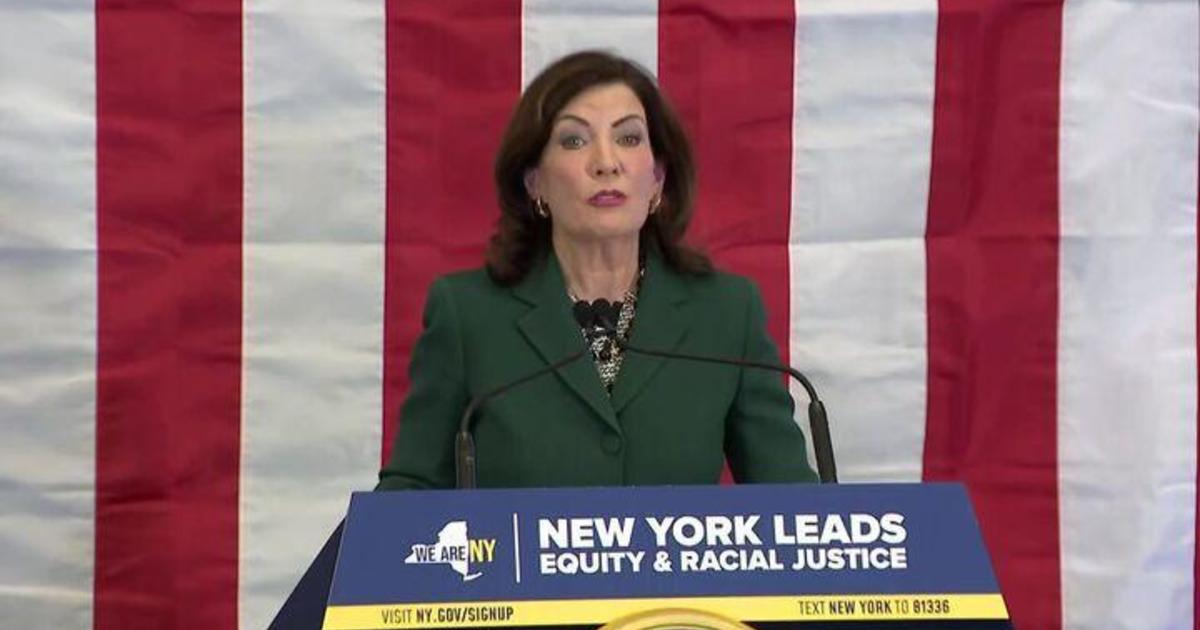New York — Gov. Kathy Hochul signed the historic Racial Justice Act on Tuesday, creating a commission to consider reparations for slavery.
The new law authorizes the creation of a community commission to study the history of slavery in New York state and what reparations will look like.
“You can see the immeasurable impacts of slavery on black poverty, black maternal mortality,” said Nicole Cordy, executive director of the Get Free group.
Activists like Cardi say new legislation will be a long time coming. She helped sponsor a bill sponsored by Assemblywoman Michelle Solages. Racially Motivated Buffalo Mass Shooting.
“We saw a monster come into the community and kill 12 black New Yorkers,” Solages said.
Read more: New York lawmakers to consider slavery reparations bill: “Historic”
The signing was held at the New York Historical Society on the Upper West Side, down the hall from the Frederick Douglass exhibit.
Slavery was abolished in New York in 1827 and officially abolished throughout the United States in 1863, but racial segregation practices such as Jim Crow and redlining — denying people loans based on race and neighborhood — followed, affecting generations.
“I’m from Long Island. We have the first suburb of Levittown, one of the largest housing projects we’ll ever have in this country, and Black New Yorkers are excluded from it,” Solages said.
“Look today, we still see blacks making 70 cents for every dollar whites make,” Rev. Al Sharpton said.
Leaders like Sharpton say the commission comes at a challenging time in America.
A 2021 Pew Research survey found 77% of black Americans support reparations, compared to only 18% of white Americans.
Advocates say New York City had more enslaved Africans before the Revolutionary War than any other city except Charleston, South Carolina. The population of enslaved Africans made up 20% of New York’s population.
“Let’s be clear about what reparations are. It’s not about fixing the past, taking back what happened. We can’t do that. No one can. But it’s more than apologizing to people 150 years later. This bill makes it possible to have a conversation about what we want the future to look like. A fair debate about. And I can’t think of anything more democratic than that,” Hochul said.
“We have a governor who is honest enough to say out loud that this is tough, honest enough to say he knows there will be pushback,” state Senate Majority Leader Andrea Stewart-Cousins said.
A nine-member committee will be formed to be appointed in the next six months. They have a period of one year before making the report public.
“Our generation needs leaders who are willing to face our true history,” said student advocate JJ Briscoe.
The next generation hopes that this momentous moment will shed light on a dark past.
New York is the nation’s second largest state Read compensations after California.

